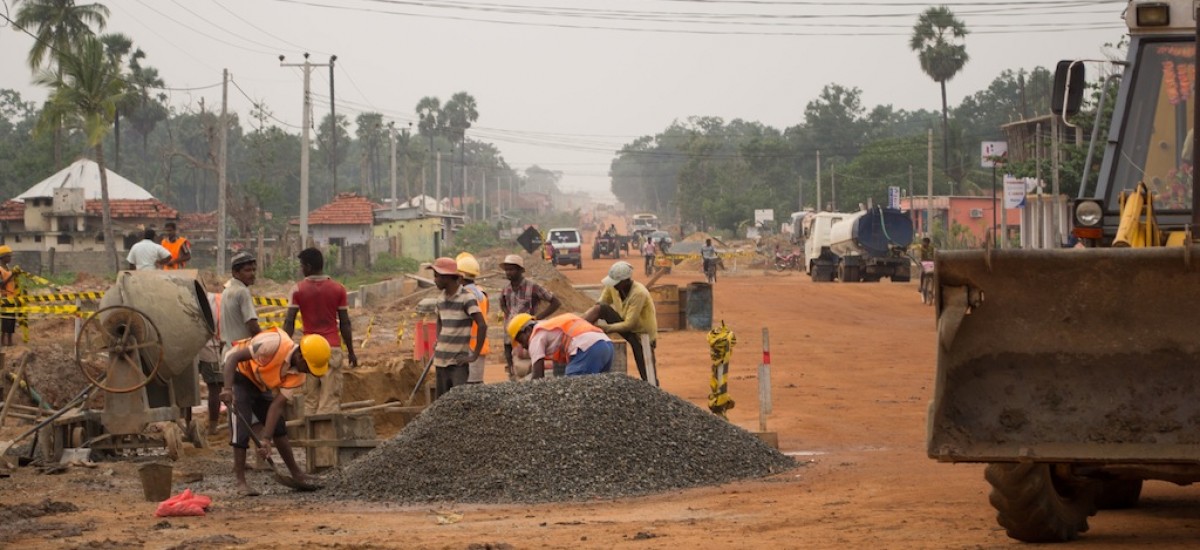As Jaffna continues its steady return to normalcy, the rest of the North and parts of the East of the country are still struggling to get over the wounds of the 30-year war that ravaged it.
Past the teams of de-miners that litter the side of the A9 road, beyond Kilinochchi towards Mullaitivu, the real remains of what was a war zone are clearly seen. Kilinochchi, having suffered heavy damages during the final stages of the war, serves as the last reminder of development with newly built banks and shops lining the road.
Beyond the new buildings lie the true problems facing the people of these former war zones. The development, while welcomed, does not deal with issues facing the people of the region. Large areas of land are being cultivated with paddy; however, a telling feature of these crops was the lack of farmers or their houses.
Tarajah, a local vegetable seller in Jaffna, explained that the majority of the crops in the North East were those owned by private companies. “This paddy is looked after by local farmers, but is done so on a contract basis. There are no tenant farmers, which means there is a lack of stability”, he said.
Tarajah added that those farmers are given a good pay and while working on the farmers has extra benefits, “the conditions they work under are a lot better because these private companies unfortunately they do not always get work.”
In Kandavalai, North-East of Kilinochchi, many of the IDPs have returned to their former homes. However, despite their return the plight of these people is far from over. Many of them have taken what little grants the government provided to rebuild their homes and have instead chosen to set up small shops were they hope to make a livelihood.
Housing projects being started by both the Australian and Indian governments are all over the former war zones, but many of the IDPs seem to have taken matters in to their own hands. Choosing to live in shacks while building small shops is indication that they are looking to secure their own futures.
Often besides these makeshift houses lay derelict structures, buildings that were once homes to the very same people who are now forced live in shacks.
While housing schemes are being setup all over the place, one vital factor being neglected was proper schooling in these areas. A former resident of the town of Puthukkudiyiruppu, Karikaalan, said he and his family had move to Jaffna in search of better schooling for their children, “the teachers are forced to conduct classes in makeshift classrooms. We lost everything in the war; we do not want our children to grow up with no education also.”
Karikaalan explained that often 30-40 students would be forced in attend classes in makeshift buildings which often get flooded when it rains. “The authorities have begun work on a new school, but there are continual delays. This is why I decided to move to Jaffna”, he said. Karikaalan added that moving to Jaffna gave him the added benefit of finding work, “I no longer find work as a farmer which means I needed to look for employment elsewhere.”
In the town of Puthukkudiyiruppu members of the army were seen handing out clothes to a crowd of people. According to the officials many of these people do not have enough money to purchase clothes. People being forced to accept a handout is in stark contrast to what was seen in Jaffna.
While road development is continuing, there seems to be little else happening in these areas. Housing schemes are taking off, but the people seem to rely on themselves in this aspect. Schooling, while happening, is under terrible circumstances and jobs are hard to come by.





